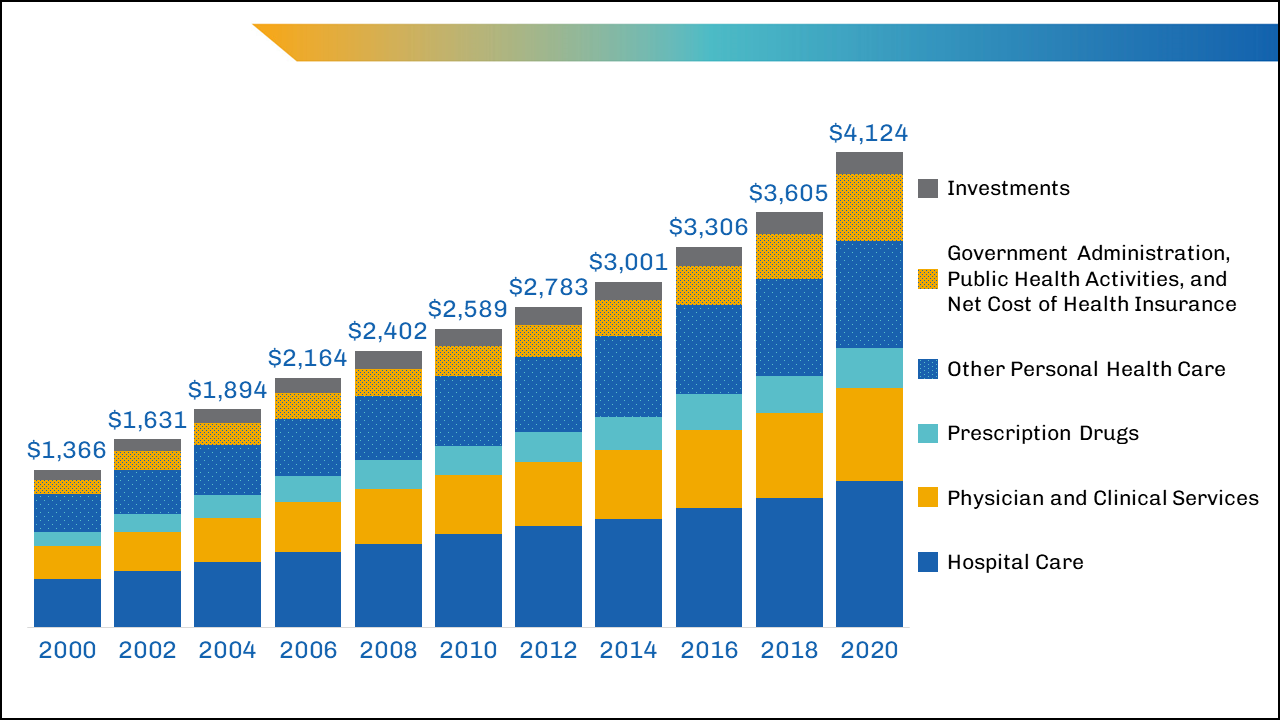Why Healthcare RCM is Crucial for Financial Health And Wellness in Medical Practices
Why Healthcare RCM is Crucial for Financial Health And Wellness in Medical Practices
Blog Article
Understanding the Role of Medical Care RCM in Enhancing Economic Efficiency and Individual Contentment
Navigating the complexities of Health care Profits Cycle Monitoring (RCM) is crucial for achieving optimal financial efficiency while simultaneously elevating client fulfillment. As we check out the transformative potential of RCM, inquiries regarding its tactical execution and future innovations beckon, promising insights that can redefine sector criteria and client experiences alike.

Secret Elements of RCM
In the complex landscape of medical care, Profits Cycle Management (RCM) is crucial in ensuring economic security and operational efficiency. A thorough RCM system incorporates a number of vital elements, each playing a vital duty in the seamless monitoring of a doctor's monetary processes. Person registration and qualification confirmation are foundational actions, making sure that accurate individual information is recorded and insurance coverage is verified before solutions are rendered. This minimizes the risk of claim rejections and accelerates the repayment procedure.

Cost capture is one more crucial component, including the precise recording of solutions given to clients. It ensures that all billable services are made up, thus making the most of earnings potential. Concurrently, clinical coding translates patient encounters right into standardized codes, which are essential for billing and governing compliance.
Cases submission and monitoring comply with, involving the prep work and entry of cases to payers. This procedure requires thorough attention to detail to reduce errors and avoid delays. Denial monitoring is a proactive approach to solve and attend to denied cases, safeguarding income streams.
Finally, payment posting and patient collections finish the cycle, guaranteeing repayments are accurately tape-recorded and exceptional balances are pursued. With each other, these elements develop a robust structure that sustains the monetary and operational health of medical care organizations.
Impact on Financial Efficiency
Effective Revenue Cycle Monitoring (RCM) significantly influences a health care organization's financial performance by maximizing capital and lowering earnings leakage. RCM includes the comprehensive payment and collection procedures that ensure medical care suppliers effectively manage their economic purchases from individual registration to last repayment. By streamlining these procedures, organizations can decrease rejected claims, quicken repayment cycles, and boost general monetary health and wellness.
Financial efficiency is enhanced with meticulous administration of payment procedures, which entails accurate coding and prompt submission of insurance claims. This lowers the likelihood of insurance claim denials and beings rejected, which can substantially prevent profits circulation otherwise attended to quickly. Furthermore, integrating sophisticated technology services promotes real-time tracking of insurance claims and economic metrics, providing health care managers with the devices necessary to make educated critical choices.

Enhancing Person Fulfillment
While optimizing financial performance is a crucial purpose of Earnings Cycle Management (RCM), it also plays a crucial role in improving individual contentment. People today need openness, effectiveness, and precision in their healthcare interactions. RCM systems improve these processes, offering individuals a seamless experience from visit scheduling to payment. By minimizing management problems, RCM permits medical care service providers to concentrate a lot more on individual care, which directly improves patient complete satisfaction.

RCM likewise boosts person complete satisfaction with efficient communication. By keeping a comprehensive database of individual information, RCM facilitates enhanced interaction between patients and healthcare companies, ensuring patients really feel notified and valued.
Methods for Efficient RCM
Accomplishing effective Earnings Cycle Management (RCM) requires health care organizations to execute a collection of calculated methods that make sure financial security and functional performance. One critical method is the fostering of technology-driven services, such as incorporated software program platforms that simplify payment procedures, minimize errors, and enhance information precision. These systems allow real-time monitoring of monetary metrics, permitting punctual identification and rectification of inadequacies.
One more technique is the standardization of procedures across the revenue cycle. Healthcare RCM. This involves establishing constant policies for individual registration, insurance coverage verification, and claims handling. By making certain that all team adhere to these standards, organizations can minimize disparities and accelerate payment collections
Team training and development likewise play a critical function in efficient see this page RCM. Trained employees can successfully browse complicated invoicing treatments and regulations, enhancing and decreasing denials money circulation. Routine updates on plan adjustments and ideal techniques assist preserve a proficient and educated workforce.
Future Trends in RCM
As medical care companies enhance their Earnings Cycle Monitoring (RCM) techniques with technology and standard processes, focus is now transforming in the direction of the future trends shaping this essential location. One significant pattern is the assimilation of synthetic intelligence (AI) and device discovering to automate intricate tasks, such as claims processing and anticipating analytics. These technologies are anticipated to minimize errors, speed up deal times, and offer data-driven insights for better click this decision-making.
In addition, the change in the direction of value-based treatment continues to influence RCM methods - Healthcare RCM. Doctor are anticipated to progressively concentrate on patient results and complete satisfaction, requiring RCM systems that can suit new reimbursement designs. This change will require more thorough information collection and analysis to successfully gauge and report on performance metrics
Interoperability is one more arising top priority, as seamless information exchange between disparate systems comes to be important. Improved interoperability will certainly assist in even more exact person information sharing, lowering administrative burdens and improving the client experience.
Verdict
Healthcare Revenue Cycle Management (RCM) dramatically influences both economic performance and client satisfaction by optimizing billing procedures, making certain precise coding, and making it possible for prompt cases entry. Reliable RCM reduces earnings leak and increases cash flow, reducing insurance claim denials and speeding up repayments.
Navigating the complexities of Medical care Income Cycle Management (RCM) is important for attaining optimum economic efficiency while simultaneously raising client fulfillment. RCM includes the extensive invoicing and collection procedures that guarantee health care carriers successfully manage their financial deals from person enrollment special info to final repayment. By decreasing management burdens, RCM permits medical care providers to focus extra on client treatment, which directly enhances person fulfillment.
By keeping a thorough database of patient information, RCM assists in boosted communication between individuals and healthcare service providers, making sure clients really feel informed and valued.Healthcare Revenue Cycle Management (RCM) substantially affects both financial performance and person satisfaction by optimizing billing processes, making sure exact coding, and enabling prompt cases entry.
Report this page